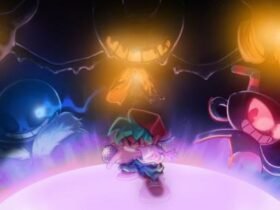Greek mythology is filled with gods and goddesses, each governing various aspects of the world. Among these deities is Hades, a powerful figure ruling over the underworld. While often feared and misunderstood, Hades’ powers are a fascinating blend of authority over the dead, control of hidden wealth, and manipulation of darkness. But what are Hades’ powers exactly? In this comprehensive post, we’ll dive deep into Hades’ powers, exploring the range of his abilities and their significance in ancient myths.
Who is Hades in Greek mythology?
Before diving into what Hades’ powers are, it’s important to understand who he is. Together with Zeus and Poseidon, Hades is one of the three brothers born to the Titans Cronus and Rhea. After overthrowing their father, the three brothers divided the cosmos: Zeus took the sky, Poseidon ruled the seas, and Hades was given dominion over the underworld. While he was not considered an evil deity, his association with death and the afterlife made him a feared figure. Despite his dark domain, Hades’ powers were vital to the balance of the cosmos.
Hades’ Role as the God of the Underworld
At the core of Hades’ powers is his role as the god of the underworld. This realm, often referred to as Hades itself, was a place where souls of the dead resided after passing away. Hades had full authority over this domain, making his powers unparalleled in controlling the dead. One of his primary responsibilities was to ensure that the souls of the deceased remained in the underworld, maintaining the separation between the living and the dead. In this role, Hades’ powers were deeply intertwined with concepts of life, death, and the afterlife.
Control Over the Dead: The Heart of Hades’ Powers
One of Hades’ most significant powers is his ability to control the dead. As the ruler of the underworld, Hades had authority over all souls that entered his domain. Once someone died and crossed the river Styx, their soul was subject to Hades’ will. While he couldn’t kill living beings directly, his control over the dead was absolute. Hades’ powers allowed him to enforce order in the underworld, making sure no soul escaped or disrupted the natural order. This control also extended to certain mythological figures, like the shades of famous heroes and villains.
The Helm of Darkness: A Symbol of Hades’ Powers
One of the most iconic symbols of Hades’ powers is the Helm of Darkness (or the Cap of Invisibility). This magical item granted Hades the ability to become invisible, making him undetectable to both gods and mortals. The Helm of Darkness was crucial not only for his control of the underworld but also in battles where stealth and surprise were essential. Hades’ powers, through the helm, allowed him to move undetected, adding an element of mystery and fear to his persona. In various myths, this helm was even lent to other gods and heroes when they needed to move in secret.
Hades’ Power Over Wealth and Hidden Riches
While Hades is primarily known for his control over the dead, another significant aspect of his powers is his association with wealth. The Greeks believed that all the minerals and precious metals hidden in the earth were under Hades’ control, making him the god of wealth, often referred to as “Plouton” (the wealthy one). This aspect of Hades’ powers symbolized the hidden riches of the earth, from gold and silver to fertile soil for crops. Thus, Hades’ powers extended beyond the underworld to the surface world in the form of earthly wealth and abundance.
Hades’ Ability to Manipulate Darkness
As the god of the underworld, darkness was a natural extension of Hades’ powers. His realm was described as a dark and shadowy place, far removed from the light of the upper world. Hades could control and manipulate this darkness, using it to conceal himself or his activities. In some myths, Hades’ powers over darkness were shown to influence the emotions of mortals, causing fear, despair, or confusion. This ability to command the very essence of darkness was a crucial element in maintaining the isolation and secrecy of the underworld.
Summoning and Commanding Underworld Creatures
Another aspect of Hades’ powers involves his command over the creatures of the underworld. Hades had at his disposal a variety of fearsome beasts, the most famous of which is Cerberus, the three-headed dog that guarded the entrance to the underworld. This monstrous guardian ensured that no soul could escape and that no living being could enter without permission. Hades’ powers also extended to other mythological creatures, such as the Erinyes (Furies), who punished wrongdoers. His ability to summon and command these beings showcased the vast reach of his authority.
The power to trap souls and punish the wicked
A darker side of Hades’ powers lies in his ability to trap souls and deliver punishment to those who committed grave sins during their lifetimes. The underworld contained various regions, including Tartarus, a place of eternal torment for those who had offended the gods or lived wicked lives. Hades’ powers allowed him to decide the fates of souls, assigning punishment or peace based on their deeds. This power over punishment was a reflection of his role in maintaining cosmic justice, ensuring that the moral order of the world was upheld even after death.
Hades’ relationship with other gods and his shared power’s
Hades, like many Greek gods, shared some powers with his fellow deities, particularly his brothers Zeus and Poseidon. The three of them together maintained the balance of the universe, with Hades ruling the underworld, Poseidon controlling the seas, and Zeus governing the skies. Though his powers were distinct, Hades occasionally interacted with the gods of the upper world. His influence could be seen in myths where the gods sought his permission to retrieve souls or gain access to the riches of the earth. In these interactions, Hades’ powers were always respected, and his authority over the dead remained uncontested.
Hades’ Limitations and Misunderstood Power’s
Despite his incredible abilities, Hades’ power’s had limits. Unlike Zeus or Poseidon, he did not directly intervene in the lives of mortals or involve himself in their affairs unless it concerned the dead or the afterlife. Furthermore, Hades could not freely roam the earth or leave the underworld for extended periods, as his realm required constant oversight. His power’s were also often misunderstood, as he was not a god of death itself—Thanatos, a lesser deity, handled the actual moment of death. Instead, Hades’ power’s were focused on ruling the domain of the dead and ensuring balance in the afterlife.
Conclusion
Hades’ power’s make him one of the most complex and intriguing figures in Greek mythology. As the god of the underworld, his abilities to control the dead, wield darkness, and oversee hidden wealth were essential to maintaining the balance between life and death. His role was vital, though often misunderstood, as a necessary force in the cosmos. While his powers may seem dark or fearsome, they played an important part in the ancient Greek understanding of the afterlife, justice, and the natural order of the world. Whether it was through controlling souls, commanding creatures like Cerberus, or influencing wealth, Hades’ power’s were a testament to his essential role in the pantheon of Greek gods.









